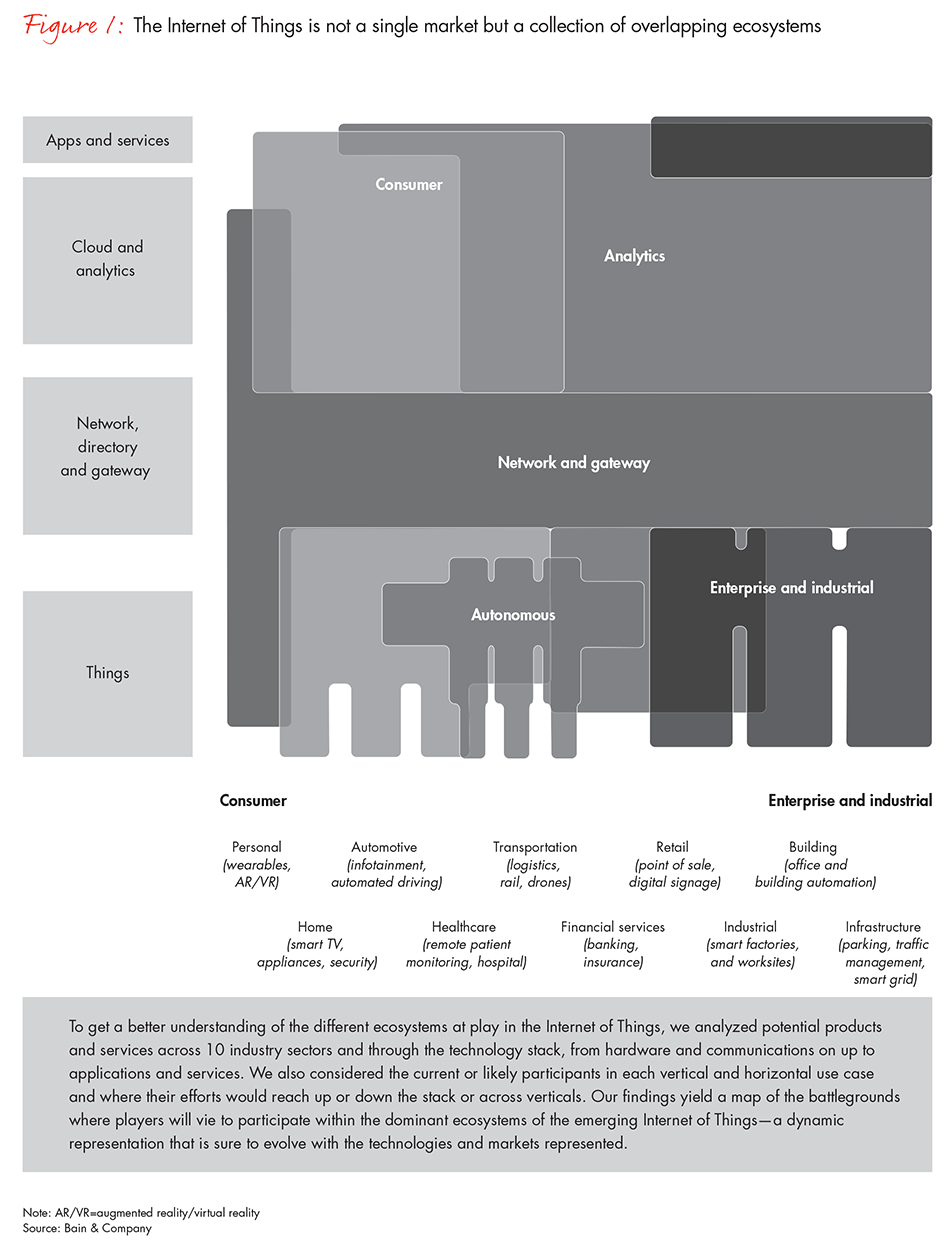The Internet of Things (IoT) is accelerating at an impressive speed, forecasters predict 25 billion devices will be online by 2020, creating over $300 billion in opportunities for companies involved.
Even with this considerable growth coming in the next five years, most enterprise folks still don’t understand or aren’t invested in the IoT revolution. Management consulting firm Bain & Company believe that’s due to misrepresentation on the definition of IoT.
In a new report, Bain & Company cut the IoT pie into five slices, which it calls the “major emerging battlegrounds” that will define the industry:
Consumer
Apple, Google, Samsung, and other mobile leaders will extend their reach to customers by launching new products in the autonomous, robotic, and smart home categories. We are already seeing the battleground emerge, Samsung acquired SmartThings, Google acquired Nest Labs, and Apple launched HomeKit.
The company able to create the most dynamic and useful system will be able to lock people further into the ecosystem. While it’s already hard to switch from iOS to Android, it’s going to be even harder when your Apple car doesn’t connect to an Android phone, or vice versa.
Industrial Internet of Things (IIoT)
Called Industry 4.0 by the German Government, IIoT could be even bigger than the consumer market and provide huge opportunities for businesses to lower costs while improving demand and reach. Bain & Company see partnerships as the key player in IIoT. Businesses that are able to cooperate with tech firms might see the most advantages in the years to come.
Networking
Networking giants like Nokia, Cisco, Ericsson, and Huawei are all looking at IoT as a massive opportunity to make more money. Industries will require real-time analytics of their network, and to get that they need super-fast Internet and a well designed network.
It isn’t just industry that wants more networking resources, smart homes will require speeds much faster than what we currently have and more importantly, we will need to see better routers and networking to ensure that Wi-Fi is reaching every corner of the house at a reasonable speed.
Real-time Analytics
Analytics in the IoT world will be more than the traditional providers, like IBM and SAP. Businesses will need dedicated cloud servers, from Amazon Web Services or Salesforce, to keep track of their entire IoT network and understand where they could save money.
Bain & Company says partnerships between analytics and businesses could bring innovation into many areas, citing successful partnerships between Amazon and John Deere’s agriculture and IBM’s collaborative work with Medtronic on diabetes management.
Autonomous driving and robotics
Autonomous cars, robots, drones, and other new technologies that provide humans with a greater level of autonomy will bring many advantages to the consumer and enterprise market. Drones are already being tested by Amazon and Google for deliveries and robots in Japan are taking over jobs as hotel guests. Uber has started testing its autonomous car in Pittsburgh, with the goal of swapping human drivers for computers, which may lower the cost of a taxi quite significantly.


















